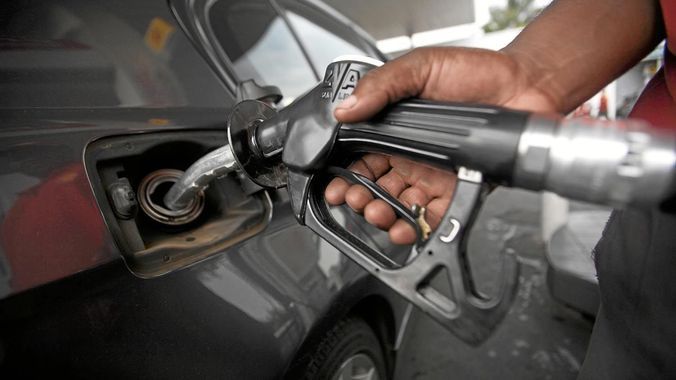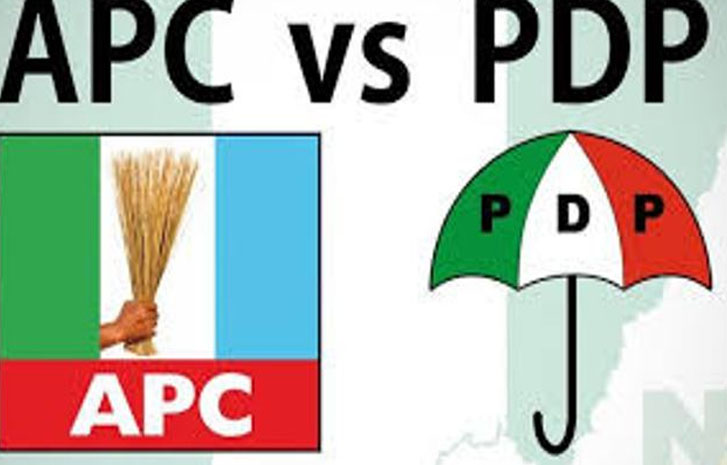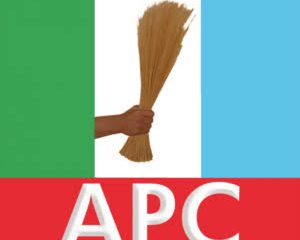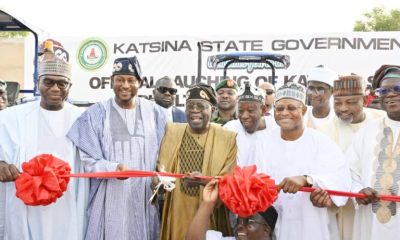Oil & Gas
Nigeria’s Petrol Subsidy ‘ll Gulp N5trn, not N4trn in 2022-W/Bank

Nigeria’s Petrol Subsidy ‘ll Gulp N5trn, not N4trn in 2022–W/Bank
. FG Struggling to Meet Debt Service Obligations-Minister
By Joseph Amah, Abuja
Minister of Finance, Budget and National Planning, Mrs.
Zainab Ahmed, says the petrol subsidy is “hurting the nation” and limiting the federal government’s ability to service debt.The World Bank, in its Nigeria’s Development Update (NDU), launched on Tuesday, projected that fuel subsidy would gulp N5 trillion in 2022 — more than Nigeria’s N4 trillion subsidy budget.
“With oil prices going up significantly, and with it, the price of imported gasoline, we now estimate that the foregone revenues as a result of gasoline subsidies will be closer to N5 trillion in 2022,” the report reads.
This year alone, NNPC has spent N947.53 billion on petrol subsidy payments.
Speaking at the hybrid launch of the World Bank’s report, the finance minister urged Nigerians to understand that petrol subsidy is causing a massive fiscal burden, thus impeding the country’s economic growth.
She said important investments in the oil and gas sector are being delayed because of the heavy fiscal burden of fuel subsidies.
“This premium motor spirit (PMS) subsidy is costing us an additional N4 trillion than was originally planned. So, this is an unplanned deficit,” Ahmed said.
“We have gone to the National Assembly; we have gotten approvals, but the approval was simply for us to cut down on some of the investment costs.
“So, investments that we needed to make in oil and gas sector which we are delaying and deferring to a later time and reducing the rollout of those investments. But we also had asked that we needed to borrow more which is very serious.
“Already our borrowing is increasing significantly and we are struggling with being able to service debt because even though revenue is increasing, the expenditure has been increasing at a much higher rate so it is a very difficult situation.
“So Nigerians need to understand that this PMS subsidy we are carrying now is hurting the nation, it’s impeding the government’s ability to be able to invest in human capital development.”
According to her, the N4 trillion earmarked for payment of fuel subsidy this year could have been invested in the health or education sector.
“But we are investing this N4 trillion in consumption, which is very wasteful. How many Nigerians own cars that are benefiting from this subsidy?” she asked.
She said Nigeria was facing many challenges on multiple fronts as the country is unable to gain from the current oil price rally.
“We are at some kind of crossroads. It is not hearsay to say that Nigeria has not derived what it should from the current high crude oil prices, rather rising crude oil prices are posing significant fiscal challenges to our economy and may lead to some negative receipts and indeed we have started seeing already those negative receipts,” Ahmed added.
“There are three factors preventing Nigeria from fully benefiting from the current boom in the international crisis.
“First of all, our prediction had fallen below Nigeria’s estimated capacity and the OPEC quota because of insecurity vandalism and theft.
“Secondly, the domestic price of payments has remained fixed, while global PMS prices have continued to rise.
“The third is that rising international crude prices also increase the burden of PMS because we buy refined petroleum products.
“The higher crude oil price goes in the global market, the more we’re paying for PMS, and by maintaining this PMS subsidy we as a country, unfortunately, forego investments that will have used the monies into essential infrastructure, goods or services that would have increased the overall productivity of the nation. So this is really the bane of the major issue that we’re facing now.”
. FG Struggling to Meet Debt Service Obligations-Minister
By Joseph Amah, Abuja
Minister of Finance, Budget and National Planning, Mrs. Zainab Ahmed, says the petrol subsidy is “hurting the nation” and limiting the federal government’s ability to service debt.
The World Bank, in its Nigeria’s Development Update (NDU), launched on Tuesday, projected that fuel subsidy would gulp N5 trillion in 2022 — more than Nigeria’s N4 trillion subsidy budget.
“With oil prices going up significantly, and with it, the price of imported gasoline, we now estimate that the foregone revenues as a result of gasoline subsidies will be closer to N5 trillion in 2022,” the report reads.
This year alone, NNPC has spent N947.53 billion on petrol subsidy payments.
Speaking at the hybrid launch of the World Bank’s report, the finance minister urged Nigerians to understand that petrol subsidy is causing a massive fiscal burden, thus impeding the country’s economic growth.
She said important investments in the oil and gas sector are being delayed because of the heavy fiscal burden of fuel subsidies.
“This premium motor spirit (PMS) subsidy is costing us an additional N4 trillion than was originally planned. So, this is an unplanned deficit,” Ahmed said.
“We have gone to the National Assembly; we have gotten approvals, but the approval was simply for us to cut down on some of the investment costs.
“So, investments that we needed to make in oil and gas sector which we are delaying and deferring to a later time and reducing the rollout of those investments. But we also had asked that we needed to borrow more which is very serious.
“Already our borrowing is increasing significantly and we are struggling with being able to service debt because even though revenue is increasing, the expenditure has been increasing at a much higher rate so it is a very difficult situation.
“So Nigerians need to understand that this PMS subsidy we are carrying now is hurting the nation, it’s impeding the government’s ability to be able to invest in human capital development.”
According to her, the N4 trillion earmarked for payment of fuel subsidy this year could have been invested in the health or education sector.
“But we are investing this N4 trillion in consumption, which is very wasteful. How many Nigerians own cars that are benefiting from this subsidy?” she asked.
She said Nigeria was facing many challenges on multiple fronts as the country is unable to gain from the current oil price rally.
“We are at some kind of crossroads. It is not hearsay to say that Nigeria has not derived what it should from the current high crude oil prices, rather rising crude oil prices are posing significant fiscal challenges to our economy and may lead to some negative receipts and indeed we have started seeing already those negative receipts,” Ahmed added.
“There are three factors preventing Nigeria from fully benefiting from the current boom in the international crisis.
“First of all, our prediction had fallen below Nigeria’s estimated capacity and the OPEC quota because of insecurity vandalism and theft.
“Secondly, the domestic price of payments has remained fixed, while global PMS prices have continued to rise.
“The third is that rising international crude prices also increase the burden of PMS because we buy refined petroleum products.
“The higher crude oil price goes in the global market, the more we’re paying for PMS, and by maintaining this PMS subsidy we as a country, unfortunately, forego investments that will have used the monies into essential infrastructure, goods or services that would have increased the overall productivity of the nation. So this is really the bane of the major issue that we’re facing now.”
NEWS
NGEP Urges Gas Reticulation In Buildings

By Olasunkanmi Onifade
Abuja, April 29, 2025 The National Gas Expansion Programme (NGEP) has called on stakeholders to promote the integration of gas reticulation systems in estates, districts, and industrial areas, following best practices seen in developed countries.
Chairman of NGEP, Prof.
Mohammed Ibrahim, made the call on Tuesday during the Builders’ Conference and Annual General Meeting of the Nigerian Institute of Building (NIOB), FCT Chapter, in Abuja.The conference, themed “Gas Reticulation in Building: Design, Safety, Environmental Compliance and Prospects for Builders,” focused on enhancing energy infrastructure in Nigeria’s built environment.
Ibrahim noted that with Nigeria’s vast natural gas reserves, gas reticulation offered a sustainable solution to improve energy accessibility, affordability, and reliability in homes and businesses.
“Gas reticulation in buildings presents a compelling pathway to a more sustainable, efficient, and resilient built environment.
“By prioritising sound design principles and ensuring strict adherence to safety and environmental standards, we can unlock the full potential of natural gas to drive progress,” he said.
He highlighted the key benefits of gas reticulation, including energy efficiency, cost effectiveness, versatility, and reliability.
Also speaking, the Chairman of the Council of Registered Builders of Nigeria, Samson Opaluwah, stressed the importance of capacity building for safe and efficient gas distribution.
He said this involved training engineers, technicians, and other professionals in system design, installation, and maintenance, while also strengthening regulatory frameworks and encouraging local innovation and manufacturing.
The Chairman of NIOB, FCT Chapter, Usman Okehi, emphasised the growing need to incorporate gas systems in residential, commercial, and industrial developments across Nigeria due to rising energy demands and gas availability.
According to him, with this advancement comes the need for strict adherence to design standards, rigorous safety protocols, and full environmental compliance.
“It is our responsibility as professionals and regulators to ensure these systems are functional, safe, and environmentally sound,” Okehi said.
He described the conference as a platform where stakeholders could explore the evolving landscape of gas infrastructure in building projects, share best practices, examine safety and environmental considerations, and assess future opportunities for builders in the sector.
The News Agency of Nigeria (NAN) reports that the Nigerian Institute of Building is the professional body for builders in Nigeria. It traces its origins to the Builders’ Society, established in London in 1834.
Oil & Gas
FG Inaugurates Committee to Enhance Gas Distribution in Urban Buildings

The Ministry of Petroleum Resources has inaugurated a Technical Working Group to enhance gas reticulation practices in Nigeria’s building industry.
The ministry’s Permanent Secretary, Amb. Nicholas Ella inaugurated the Technical Working Group (TWG) between the National Gas Expansion Programme (NGEP) and the Council of Registered Builders of Nigeria (CORBON) on Wednesday.
Reports= says that reticulation refers to the process of creating a network of pipes or tubes to distribute gas or other utilities to buildings or industrial sites.
The permanent secretary restated the importance of creating energy smart cities, saying that modern urban development relies on efficient gas and utility distribution systems,
“Most modern cities in developed countries have evolved to energy smart cities where energy, specifically gas and other utilities are piped to districts and estates.
“However, one of the key tools in creating energy smart city is the National Building
Code which, in essence, sets the guidelines on Building Pre-design, designs, construction and post-construction stages,” he said.
The permanent secretary reiterated the benefits of reticulated gas systems for households and businesses alike, adding that it ensured metered supply akin to water and electricity,
According to him, it eliminates the need for cumbersome refills, and also enhances safety by burying pipes and incorporating advanced safety equipments.
“The TWG is tasked with designing a comprehensive policy to implement best practices for gas reticulation using LPG, PNG, and Bio-Gas across Nigeria’s building sector.
“Key responsibilities include reviewing the current National Building Code, examining global gas distribution systems, and proposing quality standards for materials used in gas installations,” he said.
The permanent secretary emphasised the need for rigorous safety protocols and guidelines to ensure the efficient and safe use of gas in construction.
He urged the group to prioritise environmental sustainability in its recommendations, adding that the group is expected to submit its report by Nov. 15.
Earlier, Mr Samson Opaliwah, the Chairman of CORBON. expressed the council’s commitment to collaborate with the group to ensure safe uptake of gas for use in houses and housing estates in Nigeria.
“I assure you of the williness of CORBON to leverage the expertise and resources at her disposal to ensure that steps are put in place for gas infrastructure in buildings and estates.
“The gas infrastructure will be safe, sustainable and world-class.
” Our collective efforts will yield clear, standardised guidelines for safe and effective gas systems in buildings, matched with a skilled workforce to meet growing demands in Nigeria,” he said. (NAN)
Oil & Gas
Utilise Oil, Gas Industry Report as Tool for Public Debate – NEITI

The Nigeria Extractive Industries Transparency Initiative (NEITI) has urged stakeholders to utilise its 2022/2023 oil and gas report for civic engagement, constructive dialogue, and public debate.
Executive Secretary of NEITI, Dr Orji Ogbonnaya Orji, made the call at the report’s public presentation on Thursday in Abuja.
The report was unveiled by Mr Ola Olukoyede, Chairman, Economic and Financial Crimes Commission (EFCC), alongside Sen.
George Akume, Secretary to the Government of the Federation and Chairman, NSWG, NEITI and other dignitaries.Orji emphasised the report’s significance in guiding policy, encouraging public debate, and improving governance in natural resource management.
He highlighted the report’s comprehensive data on revenues, governance structures, operations, and compliance within the oil and gas sector.
Speaking at the public presentation of the report, Akume reaffirmed the Federal Government’s commitment to transparency principles.
Olukoyede pledged to investigate the report’s findings and recommendations, noting that NEITI’s previous reports led to the recovery of over N1 billion.
The report is available on NEITI’s website, providing valuable insights into the sector’s performance and challenges.
The presentation was attended by Chairmen of National Assembly Committees, captains of industries, members of diplomatic missions, development partners, civil society organisations and the media. (NAN)

















